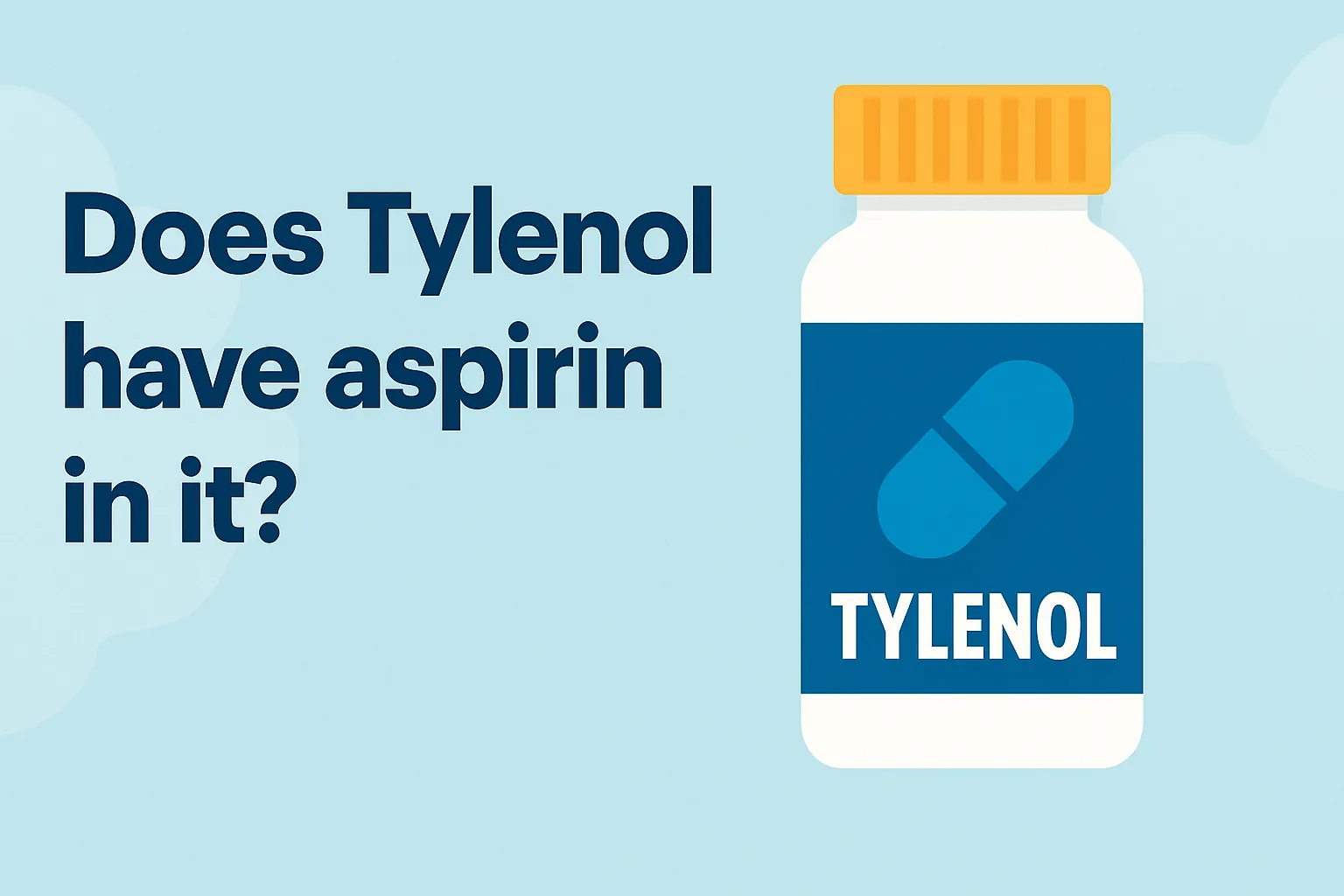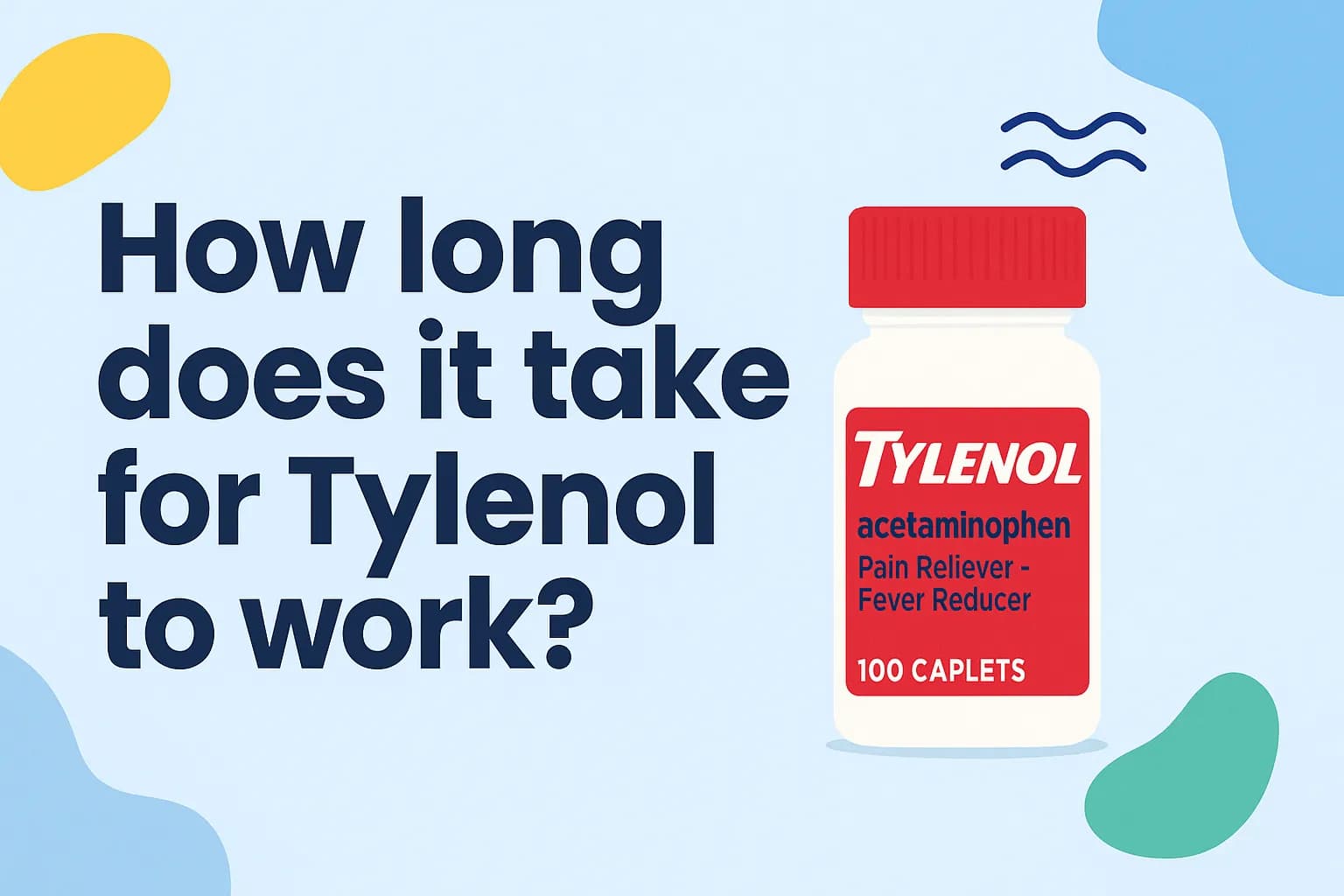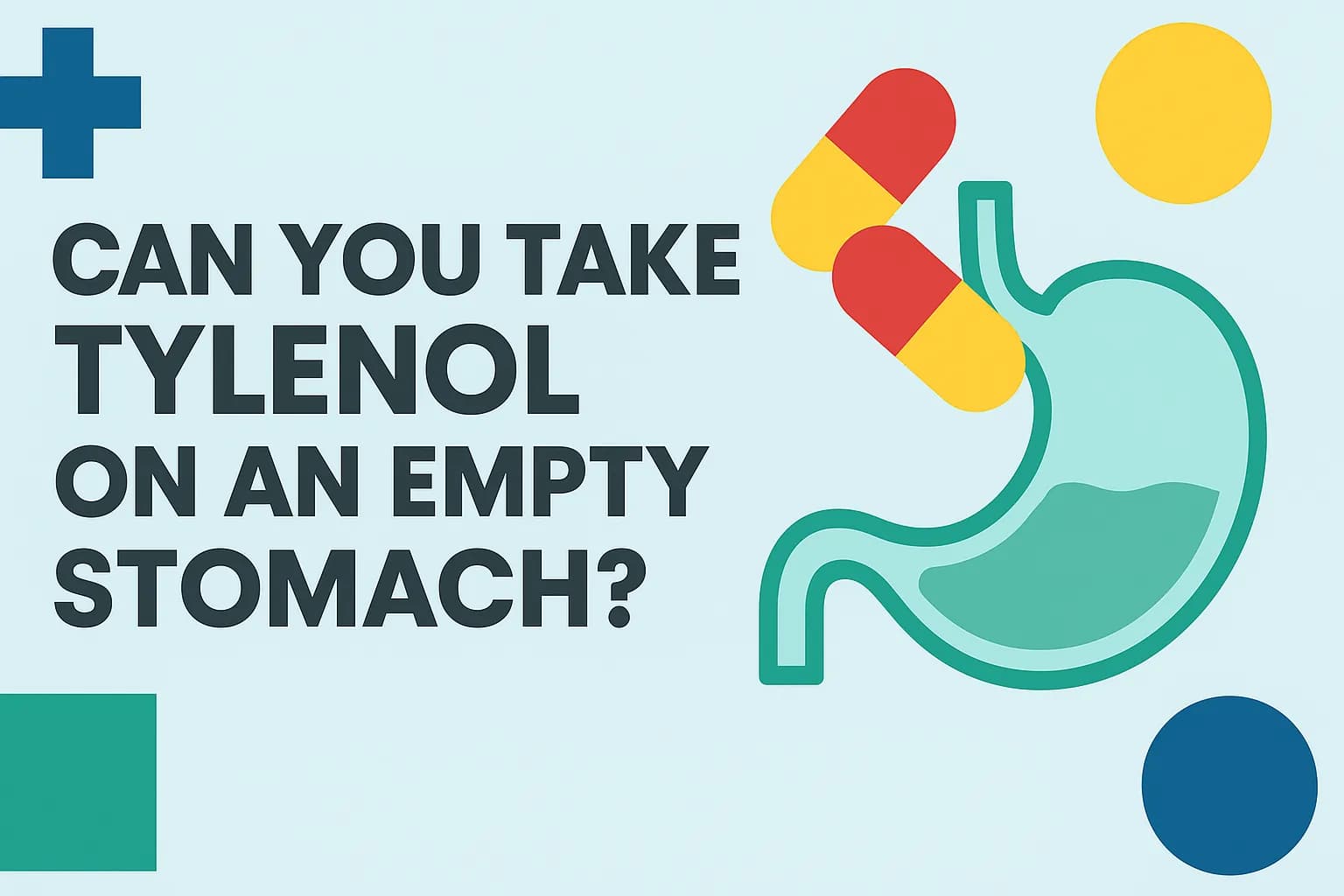Does Tylenol have aspirin in it?

Tylenol is an over-the-counter pain reliever and fever reducer that contains the active ingredient acetaminophen. It does not have aspirin or any other blood thinner in it. If you take a blood thinner or platelet-affecting medication, your healthcare provider may recommend Tylenol instead of an NSAID (such as aspirin, ibuprofen/Advil, or naproxen/Aleve) for minor pain or fever, since NSAIDs have blood-thinning effects and can irritate the stomach.
Before starting any new medication, check with your pharmacist or healthcare provider to determine the best option for you.
What is Tylenol used for?
Tylenol (acetaminophen), also known as paracetamol outside the U.S., is an analgesic and antipyretic used for:
- Mild to moderate pain relief: headaches, muscle aches, sprains, arthritis, backaches, toothaches, menstrual cramps
- Fever reduction
Tylenol is also combined with opioids for severe pain or with cold medicines. Always monitor total daily acetaminophen intake if taking multiple products containing it.
How does Tylenol work?
The exact mechanism is not fully understood. It is thought to act in the central nervous system to alter pain perception, possibly by inhibiting prostaglandin-producing enzymes, and to reduce fever by promoting heat loss.
What are the side effects of Tylenol?
- Common: headache, nausea
- Serious (seek immediate medical help):
- Allergic reaction: rash, hives, facial or tongue swelling, trouble breathing
- Liver damage: dark urine, yellowing of skin or eyes, fatigue, abdominal pain
Adults should not exceed 4,000 mg of acetaminophen per day (some providers recommend 3,000 mg/day). Avoid or limit alcohol to reduce liver risk.
Are there drug interactions with Tylenol?
Mention all medications you take, including:
Shop Medications
- Warfarin
- Alcohol
- Other acetaminophen-containing products
- Isoniazid, rifampin
- Phenytoin, carbamazepine, phenobarbital
When should you not take Tylenol?
Avoid Tylenol if you are allergic to acetaminophen or have severe liver disease.
What should you tell your healthcare provider before taking Tylenol?
- Liver disease
- Alcohol use (3+ drinks/day)
- Phenylketonuria (PKU), if product contains aspartame
- Pregnancy or plans to become pregnant
- Breastfeeding
Is aspirin an NSAID?
Yes. Aspirin is a nonsteroidal anti-inflammatory drug used for pain, inflammation, fever, and in low doses as an antiplatelet agent to reduce cardiovascular risk.
Can you take Tylenol if you are allergic to aspirin?
Yes. If you must avoid aspirin or other NSAIDs due to allergy, Tylenol is generally a safe alternative for pain and fever. Confirm with your healthcare provider before use.
Does Advil have aspirin in it?
No. Advil contains ibuprofen, not aspirin, though both are NSAIDs. Advil also has blood‑thinning effects and can irritate the stomach, so it should not be combined with other blood thinners without medical advice.
Related Medications
- Regular Strength Tylenol (acetaminophen)
- Tylenol Extra Strength (acetaminophen)
- Bayer Enteric‑Coated Aspirin (acetylsalicylic acid)
- Aleve (naproxen sodium)
- Advil (ibuprofen)
- Motrin (ibuprofen)
Sources
- American Heart Association. Aspirin and heart disease. Accessed Sept. 11, 2024.
- FDA. Aspirin for reducing your risk of heart attack and stroke: Know the facts. Accessed Sept. 11, 2024.
- Medscape. Aspirin (Rx, OTC). Accessed Sept. 11, 2024.
- DailyMed. Tylenol Regular Strength – acetaminophen tablet. Accessed Sept. 11, 2024.
- Medscape. Acetaminophen (OTC). Accessed Sept. 11, 2024.








